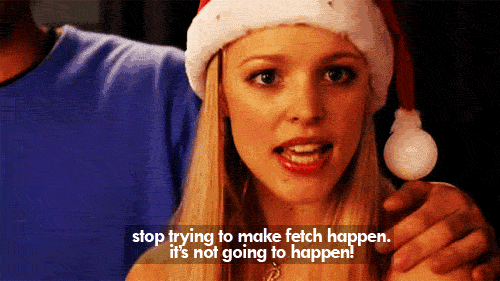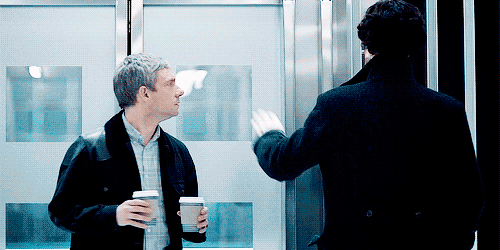Hello hello!
So, last time I posted, it was about Gamergate. The thing is, I ended it with a call to action for the gamer majority. To say more than "we're not all like that"; to reject the Gamergate supporters.
Now I need to tackle something even uglier.
The thing I want to talk about is an article I saw by a reviewer I like. The reviewer? Ben "Yahtzee" Croshaw, also known as ZeroPunctuation, the best-selling author of Mogworld and one of the most famous video game critics in the business.
 |
Source. Stabby time indeed. |
A bit of context
I had been looking forward to Mogworld for a long time. I finally opened it on my Kindle and settled in. It should have been right up my alley--satire, geekery, an antihero--but it just wasn't. I was reminded of this book, but without a believable female character, much less a few of them, and without the harmless sense of fun. Don't get me wrong; the prose was good and the concept was fine, but it had this eau d'Fedora (trilby, actually) that just bothered me. Maybe it was that the main character was a snarky sad-sack who had a girl throwing herself at him anyway. Maybe it was the self-satisfied tone, or the constant slams against fat people. (Seriously, there were a lot.) I had a nagging feeling I didn't like about Crowshaw's underlying perspective. A perspective I thought he'd moved past.
I wondered what his thoughts were on Gamergate, and ended up on Extra Punctuation, the blog site. I didn't see anything on Gamergate, I did, however, see this.
The comments were surprisingly civil and thoughtful, but the article itself dismayed me. Croshaw clearly doesn't understand the importance of other perspectives--nonwhite, nonmale perspectives especially.
What's wrong with it?
The idea that a white male character is an acceptable audience surrogate or vessel for everyone is, simply put, a bad one. Yes, there are lots of white men. But there's a lot more of literally everyone else. We need more characters who are female (or don't fit into the gender binary), and who are nonwhite, specifically. One of the things that kept me from gaming as a kid was the ocean of male characters. I couldn't relate to them, and so why should I care about what happened? I've developed more empathy now, obviously, but the ocean of gruffness and stubble on offer is still alienating and frustrating.
A lot of people who make this argument basically say that if you're good at empathizing, you should be able to enjoy a white male vessel anyway, regardless of your background. My question is--why doesn't that cut both ways? If we--the non (cis) male, non-white, non-etc people--are supposed to feel empathy for you anyway and just enjoy the story, why can't you do the same for us when presented with our vessel?
Considering how unimportant a character's appearance usually is in a video game, there's no reason not to. Even games that, as Croshaw says, use gender heavily, could actually still bow to this mechanic. The first Bioshock game is a really good example of this. Themes of fatherhood and daughters run through the game, and both of the first two games are very gendered. The Big Daddies, though, could easily have included some Big Mommies without breaking anything. You wouldn't even have to change the armour, and it's not as though they speak. The thing is, the story of parenthood and attachment issues, as well as building a relationship with your own child, aren't limited to men. Yeah, the third game does require the use of a white male character because it actually tackled racism in a period context, but the white male character was also a specific person, Booker. It's one of the few cases where it was absolutely required. But the rest of the time? Yeah, not so much.
 |
Source. EEEK, A GIRL! |
Let's talk about sex--not having it, that is
Compare that to Silent Hill, which is apparently the only game worth talking about in the past 20 years, based on Croshaw's article. As one of my friends pointed out in a Facebook discussion, there's no reason that the concept of frustrated desire is automatically one for men. Having grown up bi, especially without knowing it for the majority of my life (well, I KNEW it, but I didn't have a word or context for what I was feeling), I can confirm that men aren't the only ones who get lonely and frustrated. And even so, what about the loneliness women experience in dating, or failing to date? It doesn't have be a dating simulator to acknowledge that yes, women suffer from loneliness and a lack of getting laid, too, and that they're haunted by their exes. However, that would involve understanding that women are people, too, something that seems to elude a disappointingly large number of gamers.
Of course, it helps if you don't skim over the "wordy" dialogue in the game and pay attention to the character development.
Gender roles < pizza rolls
The thing with the idea that women = damsels, men = heroes is that it's not only staler than the air in an ancient crypt, it's wrong. Men need to be rescued too, and women's experiences aren't nearly as different from men's as they've been let to believe. Yeah, we're at a higher risk of rape, and some of the socialization is very different, but the emotions and the mental processes are actually a lot more similar than I ever thought when I was younger. Gender differences are kind of a trap and a lie, with the exception of the negative ones. There are bad things that are different for men and women (such as the elevated rate of suicide and social isolation for men vs the rates of sexual assault and kinds of abuse for women), but the good stuff is what we have in common. And yeah, some of the bad stuff, we have in common as well. This doesn't even touch on breaking down the gender binary; it certainly wouldn't kill anyone to represent characters who belong outside the Thug/Geek or Lady/Slut/Tomboy paradigms. One possible exception to this would be rogue-like or bard-like characters--speaking strictly in terms of their appearance--because these characters are often more tomboyish if they're female, or more feminine if they're male. So, more of that, please. Also, more recognition of the fact that there are going to people who just refuse to "pick a side" in the gender thing.
Less evolutionary psychology, though
This really disappointed me. There are gender differences between the brains--at least as far as we can tell; quantitative analysis has shown some areas are larger in women's brains than in men's, and vice versa. (There's a saddening paucity of research on non-gender-conforming individuals. I suspect that issue won't be remedied for quite some time.) However, differences are mostly focused on verbal reasoning skills and spatial reasoning skills. These differences also don't automatically make people think alike.
Still, from a psychological perspective, the concept of sexist protective instincts is ridiculous. Actual evolutionary psychology--whatever Psychology Today thinks--doesn't work like that. Protective instincts are a "thing", in that they exist, but gendering the presentation by saying that men automatically protect women because women are helpless isn't supported by paleoarchaeological findings or modern psychology. There are archaeologists who are addressing that women were fighters. Men are aggressive, but what about all the women spoilin' for a fight? What about the men who prefer to be passive? Nobody considers that women are just as aggressive and protective as men, but merely are trained to vent it verbally rather than physically. Women do fight. That is a thing that happens. We did not, and do not, always need to be sheltered. Furthermore, just because something existed in the past does not mean we need to perpetuate it now.
 |
Source. If only the hatted mind would turn its withering commentary to gender roles. |
Now what?
I realise that Yahtzee Croshaw isn't going to respond to this blog post, and isn't going to pay attention to criticism. That's not how he rolls. Instead, I'll address this to Yahtzee's fans. Yes, he's fun and analyses games very well, but that doesn't mean everything he says is right. We need to demand more accountability from our reviewers in terms of their perspectives and limits. In the context of Gamergate, and the slutshaming, personal attacks, and harassment there, the roles of women and PoC need to be examined more than ever. I've noticed the uncomfortable dynamic in his reviews before--automatic devaluation of female characters except as sex objects--and while I'll probably still watch his reviews, I won't be able to stop noticing that.
So in a way, yes, we do need to examine gaming journalism. Just not in the way Gamergate supporters meant we did.
***
Thanks for dropping by the nest once again. Leave your comments, rebuttals, and vehement agreements below. Don't miss any of the phuquerie. Find Michelle on Twitter, Facebook, and on Tumblr, and find her work on Amazon. Check back on the blog to see when one of the irregular posts has careened onto your feed. This is the one and only SciFiMagpie, over and out! 



